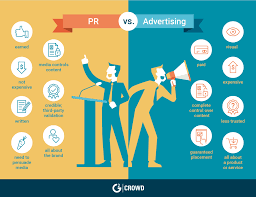Unlocking Success: The Essential Role of a Content Marketing Manager
The Role of a Content Marketing Manager
In today’s digital age, content marketing has become a vital component of any successful marketing strategy. A content marketing manager plays a crucial role in creating, implementing, and managing content that engages and resonates with the target audience.
Content marketing managers are responsible for developing content strategies that align with the overall marketing goals of the company. They work closely with the marketing team to identify target audiences, create compelling content, and distribute it through various channels.
One of the key responsibilities of a content marketing manager is to ensure that the content produced is relevant, valuable, and consistent. They oversee the creation of blog posts, social media updates, email campaigns, videos, and other types of content that help drive brand awareness and customer engagement.
Content marketing managers also analyse data and metrics to track the performance of content campaigns. They use this information to make informed decisions on what type of content resonates best with the audience and adjust strategies accordingly.
Furthermore, a content marketing manager stays up-to-date with industry trends and best practices to ensure that their strategies are innovative and effective. They may collaborate with other teams such as SEO specialists, graphic designers, and social media managers to create integrated campaigns that deliver results.
In conclusion, a content marketing manager plays a pivotal role in shaping the online presence and brand reputation of a company through strategic content creation and distribution. Their ability to craft compelling stories and engage audiences sets them apart as key drivers of success in today’s competitive digital landscape.
Mastering Content Marketing: 8 Essential Tips for Success
- Understand your target audience thoroughly
- Create a content strategy aligned with business goals
- Consistently produce high-quality and engaging content
- Utilize various content formats such as articles, videos, infographics, etc.
- Stay updated with industry trends and best practices
- Collaborate with other teams for cross-promotion of content
- Analyse data and metrics to measure the effectiveness of your content
- Continuously iterate and improve your content based on feedback
Understand your target audience thoroughly
Understanding your target audience thoroughly is a fundamental aspect of being a successful content marketing manager. By delving deep into the demographics, preferences, behaviours, and needs of your audience, you can create content that resonates with them on a personal level. This insight allows you to tailor your messaging, tone, and delivery to effectively engage and connect with your target audience, ultimately driving better results for your content marketing campaigns.
Create a content strategy aligned with business goals
Creating a content strategy that is closely aligned with the business goals is essential for the success of a content marketing manager. By understanding the overarching objectives of the company, the content strategy can be tailored to support and enhance these goals effectively. This alignment ensures that every piece of content created serves a specific purpose in driving business growth, whether it’s increasing brand awareness, generating leads, or nurturing customer relationships. A well-defined content strategy that is in sync with business objectives not only maximises the impact of content marketing efforts but also contributes to the overall success and sustainability of the business.
Consistently produce high-quality and engaging content
Consistently producing high-quality and engaging content is a fundamental tip for any content marketing manager. By maintaining a standard of excellence in content creation, they can effectively capture the attention of their target audience and build credibility for the brand. Engaging content not only attracts viewers but also encourages them to interact, share, and ultimately convert into loyal customers. A content marketing manager who prioritises quality and engagement sets the foundation for successful campaigns that resonate with audiences and drive business growth.
Utilize various content formats such as articles, videos, infographics, etc.
To excel as a content marketing manager, it is essential to leverage a diverse range of content formats, including articles, videos, infographics, and more. By utilising various content types, you can cater to different audience preferences and engage with them through multimedia channels. This approach not only enhances the overall content strategy but also allows for creative storytelling and increased audience interaction, ultimately driving stronger brand awareness and customer engagement.
Stay updated with industry trends and best practices
To excel as a content marketing manager, it is essential to stay updated with industry trends and best practices. By keeping abreast of the latest developments in the field, you can ensure that your content strategies remain innovative and effective. This proactive approach not only demonstrates your commitment to professional growth but also equips you with the knowledge and insights needed to create impactful campaigns that resonate with your target audience. Embracing continuous learning and evolution in the dynamic landscape of content marketing is key to staying ahead of the curve and achieving success in your role.
Collaborate with other teams for cross-promotion of content
Collaboration with other teams for cross-promotion of content is a valuable strategy for a content marketing manager. By working closely with SEO specialists, graphic designers, social media managers, and other relevant teams, the content marketing manager can ensure that the content reaches a wider audience and resonates across different platforms. This collaborative approach not only enhances the visibility of the content but also strengthens the overall brand presence and engagement levels. By leveraging the expertise of each team member and aligning their efforts towards a common goal, the content marketing manager can drive more impactful results and maximise the effectiveness of their content campaigns.
Analyse data and metrics to measure the effectiveness of your content
Analysing data and metrics to measure the effectiveness of your content is a crucial aspect of being a successful content marketing manager. By tracking key performance indicators such as website traffic, engagement rates, conversion rates, and social media metrics, you can gain valuable insights into what resonates with your audience and what areas may need improvement. This data-driven approach allows you to make informed decisions, refine your content strategies, and ultimately achieve better results in reaching and engaging your target audience.
Continuously iterate and improve your content based on feedback
In the realm of content marketing management, it is essential to embrace a culture of continuous improvement by actively seeking and incorporating feedback into your content strategies. By iteratively refining your content based on valuable insights and input from your audience, stakeholders, and analytics data, you can enhance the relevance, effectiveness, and impact of your messaging. This iterative approach not only ensures that your content remains engaging and resonant with your target audience but also demonstrates a commitment to ongoing growth and adaptation in the dynamic landscape of digital marketing.




